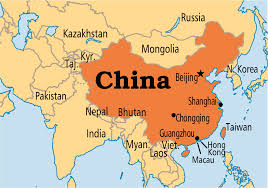China has one of the most ambitious nuclear power programs in the world. They currently have twenty two reactors in operation which are only supplying about two percent of their electricity. They have at least twenty seven nuclear power reactors under construction with sixteen more approved for construction. They hope to increase the percentage of electricity generation to at least seven percent. But despite major investment and support of the Chinese government, there are some serious problems that will have to be overcome before their bright nuclear future dreams come true.
There is no comprehensive set of laws covering the nuclear power industry in China. This can become a serious problem if there are incidences of corruption and/or incompetence on nuclear power projects that lead to major accidents.
It is now estimated that at least thirty thousand new nuclear technicians will be required by 2025 in order to managed all the new reactors coming online. This would mean that at least three thousand new technicians will have to be graduated each year in China to meet the demand. Meanwhile, back in the real world, China is producing about three hundred nuclear technicians per year. They will have to increase their training program by ten times to produce enough technicians.
Current projects have problems with cost overruns, scheduling delays, technical issues, incompetence, corruption, quality control, etc. It is reasonable to assume that these problems will continue to plague the reactors that are under construction and those that have been approved for construction.
Nuclear reactors require enormous amounts of water to cool the reactors. Twenty six reactor projects that were planned for construction in inland provinces had to be cancelled because of a lack of water for cooling. Locating new reactors on the coast of China where there is major industrial activity makes sense from an economic point of view but those reactors will be vulnerable to typhoons and tsunamis.
All those reactors will need fuel. Currently, domestic uranium deposits provide less than a quarter of the fuel needs of China's operating reactors. China is planning on producing a third of its fuel needs of their planned fleet of sixty five nuclear power reactors internally. That will require them to ramp up internal mining and refining by four times to supply the reactors operating, under construction and approved. This will potentially heavily impact the environment, especially considering the lax regulation of pollution in China. They expect to get a third of their fuel for their planned fleet through equity in foreign mines and joint ventures with foreign companies. The problem with these arrangements is that politics can intervene to hamper or even shut down such supplies. And finally, a third of their future fuel will be purchased on the open market. The price of uranium has been depressed on the world market, but as the demand rises the price will rise making the cost of electricity generated by nuclear power plants more expensive for China.
Part of China's plan for domestic production of fuel relies on the reprocessing of spent nuclear fuel to extract plutonium to be used to make new fuel. The citizens of China are not particularly excited by the location of such nuclear facilities in their towns and cities. A planned nuclear fuel reprocessing plant project is generating mass protests in a Chinese city. At first, the national government cracked down and threatened retaliation against protestors. More recently, the government has retreated and is trying to placate the protestors. A previous attempt to site a fuel reprocessing plant had to be cancelled because of public rejection.
All in all, it seems to me that China is going to be devoting a lot of money, time and effort to get five more percent of their electricity from nuclear power. Their ambitions may exceed their ability to deliver on all their great nuclear plans. I think that money, time and effort would be much better spent developing sustainable alternative energy such as wind, water, solar and geothermal sources.
